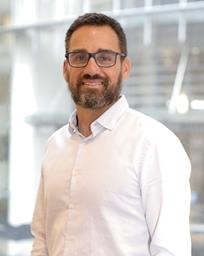|
|
2023 KEYNOTE SPEAKERS
Dr. Lisa Monchalin | Indigenous Solutions: Elder Wisdom on Crime and Injustice in Canada
Indigenous peoples are the most overrepresented in the Canadian prison system compared to any other segment of the Canadian population. Yet at the same time, Indigenous laws and methods of justice are underappreciated within Canada’s legal system. Instead, Euro-Canadian common and civil law traditions are upheld and reinforced. Many Euro-centric teachings and belief systems incorrectly assumed that Indigenous peoples lacked justice systems, laws, culture, and religion. In fact, Indigenous peoples have very advanced justice systems, laws, cultures and spiritual practices. Ignoring or devaluing Indigenous histories, truths, and stories, promotes the colonial falsehood that Indigenous peoples either did not have laws, or that European contributions are somehow better, or trump, Indigenous legal orders. This is not the case, Indigenous peoples had, and still have, advanced laws, and approaches to justice in place long before colonizer arrival. Thus, this presentation challenges and deconstructs mainstream approaches, arguing that they continue state oppression and contribute to injustice and crime. A new framework must be adopted and come from the true experts of the land. As such, this presentation shares Elder wisdom on crime and justice from interviews with Indigenous Elders from various nations across Canada. It concludes by arguing that much can be learned from Indigenous legal narratives, as true laws of the land can be brought to the forefront for meaningful change to address overrepresentation.
| Lisa Monchalin, PhD, is faculty in the Department of Criminology at Kwantlen Polytechnic University. She is a graduate of Eastern Michigan University where she obtained her Bachelor’s degree in 2004 and her Master’s degree in 2006, both in Criminology. In 2012, she graduated with her Doctorate in Criminology from the University of Ottawa. In 2022, she graduated with her Juris Doctor from The University of British Columbia, Peter A. Allard School of Law. Lisa is a registered citizen of the Métis Nation of Ontario. She was born in St. Catharines, Ontario and grew up in the Niagara Region. She is Métis-Anishinaabe from the historic Métis community of Sault Ste Marie. She also has ancestry that includes Scottish, French, Algonquin, and Huron. In fall 2018, she was a Visiting Professor at the University of Toronto Centre for Criminology and Sociolegal Studies. In the winter of 2017, she was a Visiting Professor at Central Washington University, a cross appointment with the Department of Law and Justice and the Department of Sociology. She is the author of The Colonial Problem: An Indigenous Perspective on Crime and Injustice in Canada, with the University of Toronto Press. |
Dr. Marshall Watson | Healing and empowerment: How should justice services address the needs of indigenous Australians
The over representation of indigenous Australians in the justice setting is well documented and the reasons for this are multifactorial. However limited gains have been made to address these issues which have generally been addressed through mainstream and non-indigenous service approaches. As a collective we need to incorporate more indigenous ways of thinking and knowing to address the burden of dis-ease that his faced by indigenous Australians in custody and the justice setting, from within custody but also in the community and to prevent reincarceration and promote re-connection with family and community. We need to look at and incorporate what has been shown to work for indigenous Australians but also how to support services to utilise these approaches within the mainstream setting. In this presentation I will look at approaches that services can take to achieve this.
| Dr Marshall Watson is a descendant of the Noongar people of the southwest of WA. He is a consultant psychiatrist, dual trained in both child and adolescent and forensic psychiatry. He is currently working in private practice is also a consultant psychiatrist with Queensland health Forensic child and youth mental health service. He has previously been the clinical lead for forensic child and adolescent forensic mental health services is South Australia. Dr Watson is and associate researcher with the Telethon Kids Institute and is also a Chief investigator through the university of Queensland, for IMHIP-Youth: A multi-disciplinary collaboration to embed and evaluate a model of social and emotional wellbeing care for Indigenous adolescents who experience detention. Dr Watson sits the RANZCP's section of Child and Adolescent Forensic Psychiatry and Aboriginal Torres Strait Islander Mental Health Subcommittee. His professional interests include medical leadership, cultural competency in health care, and the mental health of young people both in the forensic system and out of home care. |
Dr. Stuart Kinner | Improving (Mental) Health Outcomes after Incarceration: Whose Responsibility is it?
Incarceration is both a marker and a driver of poor health outcomes. Rates of preventable morbidity and mortality after incarceration are extraordinarily high, indicating that incarceration is best conceived of as an ‘interruption’ in life trajectories distinguished by chronic health adversity. Among people in prison, complex multi-morbidity (including dual diagnosis) is normative and necessitates coordinated, multi-sectoral care.
Custodial settings provide a rare (albeit regrettable) opportunity to identify unmet health needs and initiate appropriate care. However, achieving sustained improvements in the health of people who experience incarceration requires ongoing, high-quality care after release from custody. Yet investment in throughcare and post-release support is woefully inadequate. Poor health outcomes after incarceration compound health inequity, compromise public health, reduce public safety, and impose an avoidable burden on scarce public resources. Improving health outcomes after incarceration is therefore a whole-of-government responsibility. Forensic mental health services have a critical role to play in providing coordinated, continuous care for people who experience incarceration, but cannot operate effectively in isolation. In this presentation I will summarise the evidence underpinning these statements, and argue in support of the World Health Organization (WHO) call for an approach of ‘prison health in all policies’.
| Dr. Stuart Kinner is Professor of Health Equity at Curtin University, Group Leader for Justice Health at Murdoch Children’s Research Institute, Honorary Professor at The University of Melbourne, and an Adjunct Professor in the Griffith Criminology Institute, Griffith University. For the past two decades Stuart’s research has focussed on health services and health outcomes for people who come into contact with the criminal justice system. He is experienced in multi-sectoral data linkage, cohort studies, randomised trials and other rigorous evaluation methodologies, systematic review, and meta-analysis. During his career Stuart has produced >300 publications including >200 peer-reviewed papers, and attracted >$29 million in research and evaluation funding. He Chairs Australia’s National Youth Justice Health Advisory Group and serves on Australia’s National Prisoner Health Information Committee, the WHO Health in Prisons Programme (WHO-HIPP) Steering Group, and the Worldwide Prison Health Research and Engagement Network (WEPHREN) Steering Committee. |



